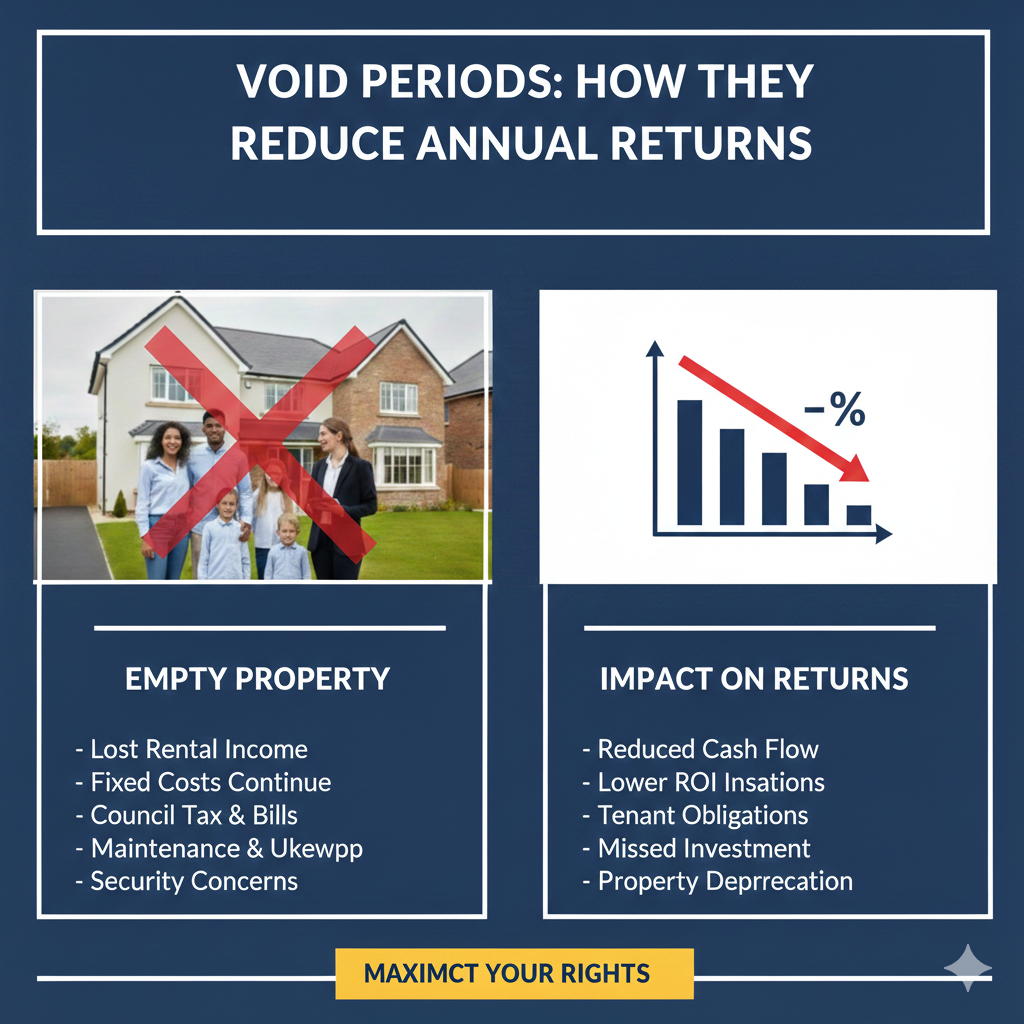
Introduction: A New Chapter for England’s Rental Market
The Renters’ Rights Bill 2025 represents one of the biggest overhauls of private renting in decades. Enacted in October 2025, it aims to make tenancies fairer, safer, and more secure for tenants. However, the reforms also bring a new wave of compliance challenges, costs, and legal obligations for landlords.
This first part of our three-part series breaks down the fundamental structural changes in tenancy law — including the abolition of Section 21 and the move toward periodic tenancies — and explores what they mean for property owners across England.
While the government’s intention is to rebalance power between tenants and landlords, many landlords are now concerned about losing flexibility and facing income uncertainty. For those seeking a stable, compliant, and hands-off solution, Citywide Housing’s Guaranteed Rent Programme offers a secure alternative with no voids, no arrears, and no tenant issues.
Part 1: The End of Section 21 and Fixed-Term Tenancies
1. Abolition of Section 21 Evictions
The Bill abolishes Section 21 “no-fault” evictions, meaning landlords can no longer end a tenancy without providing a valid reason. This is one of the most significant reforms in the history of the private rental sector.
From now on:
Landlords can only regain possession based on legal grounds (for example, rent arrears, anti-social behaviour, or needing to sell the property).
Eviction notices must follow statutory procedures, with evidence to support the claim.
Courts will determine whether eviction requests are reasonable, rather than automatic.
Impact on Landlords:
This reform drastically reduces flexibility for landlords. Recovering possession will now take longer and involve greater legal scrutiny. Delays in court processing could extend tenancy periods even when legitimate grounds exist.
2. All Tenancies Become Periodic by Default
Fixed-term Assured Shorthold Tenancies (ASTs) are being replaced by rolling periodic tenancies. In simple terms, there will be no more 6- or 12-month fixed terms. Every tenancy will continue indefinitely until the tenant chooses to leave or the landlord provides valid grounds for possession.
Key Details:
Tenants can leave at any time with proper notice.
Landlords can only end the tenancy on legal grounds (as defined in the Bill).
The concept of a “renewal period” is abolished — the tenancy simply continues.
Impact:
This provides tenants with long-term stability but reduces landlord control. Property owners can no longer rely on the end of a fixed term to regain possession or review rental agreements.
3. Revised Grounds for Possession
Under the new framework, landlords may only recover their property through approved statutory grounds. These include:
Persistent rent arrears (even if the tenant later repays part of the debt)
Anti-social behaviour
Significant property damage or neglect
Landlord intends to sell or occupy the property
Breach of tenancy agreement
The Bill also introduces new evidentiary requirements, meaning landlords must prove each ground with documentation or inspection records.
Impact:
This ensures tenant protection but introduces more administrative responsibility for landlords. Failure to provide the right evidence can result in possession claims being dismissed.
4. Rent Regulation and Tenant Challenges
The Renters’ Rights Bill also brings in a formal rent review process:
Landlords must follow a statutory procedure to propose rent increases.
Tenants can challenge rent rises through the tribunal system if they believe the increase is unfair.
The Bill limits rent in advance to one month, reducing upfront payments.
Impact:
This increases administrative work for landlords and could lead to slower rent adjustments. It also reinforces the need for full transparency in rent setting.
5. What This Means for the Private Rental Sector
These structural changes mark a major cultural shift in property letting. The era of flexible, short-term tenancies is ending, replaced by a system focused on tenant permanence, fairness, and accountability.
While tenants gain stronger protections, landlords face:
Longer possession timelines
Increased compliance paperwork
Greater exposure to rent disputes
This is where Citywide Housing offers a safety net. Through our Guaranteed Rent Scheme, landlords can secure consistent income for 3–5 years, with:
Guaranteed rent every month
No voids, no arrears, no repairs
Full compliance management
Zero tenant involvement
Our commercial lease agreements protect landlords from exactly the kind of financial uncertainty these reforms introduce.
Next in the Series: Tenant Rights, Pet Ownership & Anti-Discrimination Rules
In Part 2, we’ll explore the expanded rights tenants gain under the Bill — including pet ownership, protection from discrimination, and greater transparency in rent and tenancy terms. We’ll also explain how landlords can remain compliant without compromising profitability.
How CHG Handles Compliance for You
At Citywide Housing Group, we remove the stress of compliance by:
- Applying for and maintaining your HMO licence
- Arranging all safety inspections and certificate renewals
- Carrying out repairs to meet council standards
- Keeping your property ready for inspection at all times
- Providing consistent monthly rent with no void periods

How Our Guaranteed Rent Scheme Works
Step 1: Get in Touch
Contact us today by phone or complete our online form to schedule a free, no-obligation property consultation.
Step 2: Property Assessment
We’ll visit your property to assess its condition, provide recommendations for any necessary improvements, and ensure it meets all required standards.
Step 3: Compliance & Handover
We manage the entire compliance process, carry out any necessary repairs, and arrange for an inventory check before officially handing over the property.
Step 4: Consistent Rent Begins
Once everything is in place, we take care of the property management, and you’ll start receiving consistent rent every month.
Why Guaranteed Rent is Perfect for Bradford Property Investors
Bradford is a thriving city with a strong rental market. However, like many areas in the UK, landlords often face the challenges of tenant turnover, property voids, and late payments. By partnering with Citywide Housing, you gain the peace of mind of knowing that you will receive a consistent, hassle-free income.
Bradford also benefits from high demand in areas like Keighley, Shipley, Ilkley, and Baildon, making it an ideal location for guaranteed rent schemes.
How Citywide Housing Group Supports Landlords
At Citywide Housing Group, we specialise in helping landlords secure guaranteed income with long-term leases. Our approach ensures:
Full Property Management: From tenant management to maintenance, we take care of everything so you don’t have to.
Compliance and Legal Support: We ensure that all your properties meet legal requirements and comply with housing standards.
No Hidden Fees: We believe in transparency, with no surprise costs—what we agree on is what you get.
Local Expertise: Our team is familiar with the Bradford housing market, ensuring you get the best returns for your property.

FAQs About Guaranteed Rent for Bradford Landlords
Our leases typically last between 3 to 5 years, offering landlords long-term stability.
Even if your property is vacant, you will still receive guaranteed rent payments.
Yes, you can sell your property at any time, but your guaranteed rent payments will continue until the end of the lease agreement.
Contact us for a free property assessment and see how our guaranteed rent scheme can benefit your Bradford property.
How to Get Started with Citywide Housing Group
If you’re ready to secure fixed, reliable income with no voids or arrears, it’s time to join the growing number of landlords in Bradford benefiting from guaranteed rent schemes.
Contact Citywide Housing Group today to schedule your free property assessment and discover how we can help you unlock the potential of your property.
For more information, visit Citywide Housing or call us at 0113 323 0678.
Share
Latest posts


The Benefits of Choosing a Guaranteed Rent Scheme

How a Rent Guarantee Scheme Protects Your Rental Income

Essential Landlord Tips for Managing Properties Effectively
Did you enjoyed this article?
Join our email mailing list to receive weekly tips, industry insights + more.
Discover Relevant Articles and Resources

HMO landlords in 2026: why this year is a turning point
TL;DR HMO landlords face tighter regulation, higher compliance costs, and increased scrutiny in

Void periods: how they reduce annual returns
TL;DR Void periods directly reduce annual rental returns. Even short gaps between tenancies

Long-term leases: do landlords lose control?
TL;DR Long-term leases do not remove ownership control. Instead, they transfer day-to-day management
Ready to Secure Your Guaranteed Rent?
Fill out the form for a free consultation call and let us take care of your property, hassle-free.
